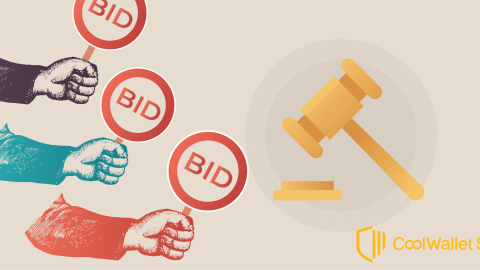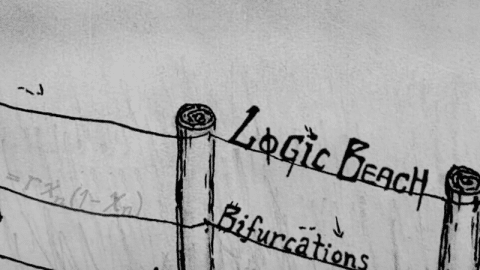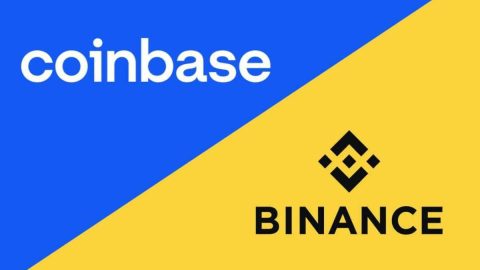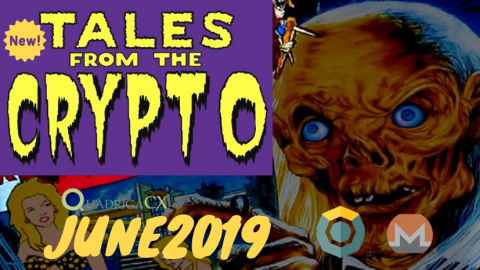Introduction
The last week has been a real blurrrrr in the crypto world. With a massive $300 million airdrop on Valentine’s Day 2023, hot new NFT marketplace Blur Exchange created a perfect PR storm that has resulted in it since overtaking OpenSea in recent trading volumes thanks to its ability to help NFT traders flip their JPEGS like DeFi tokens, generating nearly $500m in trades in a week. While the 90s brought the world Blur vs Oasis (ask your parents), this decade is shaping up to be all about the Blur vs OpenSea war, and the wei are about to hit the fan(s).
So what drives the new NFT challenger’s hype?
Well, Blur Exchange is reinventing the rule book for NFT trading, and bringing in the kind of trading usually reserved for DeFi degens. It’s all about volume: Blur encourages traders to buy near the floor price in order to compete on its Season 2 leaderboard and qualify for future airdrops, helping to skyrocket the price of prized collections such as BAYC and Moonbirds. By merging NFTs and DeFi trading with zero-fee trading, Blur is building an intense new rivalry with OpenSea, which in response has now also dropped trading fees on its platform.
The NFT market has grown rapidly in recent years, with more and more people buying and selling digital collectible assets. To cater to the needs of the community, the Blur Exchange was launched in October 2022, and it has quickly become one of the most popular NFT marketplaces in the Web3 ecosystem.
In this article, we will explore the unique features of the Blur Exchange, including the Blur token ($BLUR), what makes it stand out from its competitors, the aggregated NFT marketplaces which also serve as its competitors.
Great news! $BLUR will soon be officially supported by CoolWallet. Keep $BLUR tokens as safe and convenient as possible on CoolWallet App. HODL your $BLUR discreetly in your actual wallet in cold storage with CoolWallet Pro, our flagship Web3 hardware wallet that’s built for the sophisticated DeFi and NFT traders on the go. Check our next official CoolWallet App update which should be availablele by the first week of March 2023 at the latest!
What is Blur Exchange?

Founded by recently doxxed Web dev Pacman, Blur Exchange is a decentralized NFT aggregator marketplace catering to institutional-grade NFT trading by offering unique and convenient features and tools catering to the sophisticated NFT trader. It does this by pooling together NFT listings from leading marketplaces such as OpenSea, LooksRare, and X2Y2 and allowing native listing of its exchange without charging commission from NFT sellers.
What is $BLUR token?
$BLUR is an ERC-20 governance token for the Blur network which has been given to users of the platform who support creator royalties as an incentive. These BLUR token airdrops have been delivered since late last year as a reward to active users who helped out with beta testing prior to the official launch in October 2022. They were known as Care Packages and came with four tiers of rarity.
$BLUR has a max supply of 3 billion tokens and 12% of the supply was airdropped to BLUR holders. The Blur team owns 9% that’s in a multi-sig wallet while the remaining 78 percent is delegated to two lock-up contracts. During the last airdrop on 14 February, nearly $300m in tokens were airdropped, with the subsequent trading frenzy driving its price up to $5 before receding to under $1.
What’s inside Blur Exchange‘s secret sauce?
Are you a sweeper or sniper? Then you’re in luck- Blur’s pro trader design boasts many features that reinvent NFT trading and makes it more streamlined and intuitive than its competitors, helping it to build up a passionate user base very quickly.
These features include:
NFT sweeping on multiple leading NFT marketplaces
By having their purchase transactions processed first, Blur’s gas priority presets also enable customers to compete with those purchasing NFTs through other exchanges or aggregators. By providing consumers with tools to “sweep the floor”—buy several of the least expensive NFTs from a collection—Blur also outperforms its rivals.
NFT sniping thanks to NFT reveals tools
The platform updates listings 15 times a minute and is almost 10x quicker than existing NFT aggregators, displaying pending transactions on NFTs in less than a second. The near-instantaneous information updates on NFT collection art reveals and the lightning-fast pending transactions display provide Blur users a significant advantage when sniping NFTs, which means quick buys of new collections.
Enhanced NFT portfolio management and analytics
Blur’s interface is very customizable, switching between several views, such as lists and tiles, when looking through collections, depending on the user’s preference. Unlike other NFT marketplaces, Blur displays everything on a single page, making it easier to access and compare all relevant collection data, thanks to a smoother user design and interface.
Blur vs. other NFT marketplaces
In addition to being a standalone NFT marketplace, Blur also aggregates the leading NFT marketplaces such as OpenSea, X2Y2 and LooksRare.
OpenSea is the global NFT marketplace leader, while X2Y2 has the 3rd biggest trading volumes on Ethereum, LooksRare offers token stakers a share its trading fees in ETH or WETH
Blur has taken a unique approach by aggregating NFTs from different marketplaces and allowing users to list their assets natively on the platform. This approach is a departure from the traditional NFT marketplaces that charge a commission on trades.
In addition to OpenSea, two of the other most popular NFT marketplaces that Blur aggregates from are LooksRare and X2Y2. LooksRare is a competitor of OpenSea and offers its token stakers rewards with the platform’s trading fees in Ether (ETH) and Wrapped Ether (wETH). Meanwhile, X2Y2 ranks third concerning NFT trading volumes on Ethereum, distributing the platform’s trading fees among X2Y2 stakers and incentivizing trading through X2Y2 incentives.
A similar aggregator NFT marketplace is Rarible, which has its native token RARI. Rarible’s token doesn’t share the platform’s trading yield, making it different from X2Y2 and LooksRare, and is only a governance token used in voting on proposals in the Rari Foundation. It supports NFTs on the Ethereum, Solana and Tezos chains.
$BLUR can be traded on leading centralized crypto exchanges, such as OKX, Coinbase Exchange, and KuCoin, or swapped on Ethereum-supporting wallets like MetaMask.
Conclusion
Blur is an NFT marketplace and aggregator that brings a breath of fresh air to NFT trading by catering to ever-evolving NFT pro traders. The platform is community-driven, with no trading fees for sellers, and is uniquely designed with features such as sweeping across multiple NFT marketplaces, fast access to NFT reveals, and a superior user experience, among others.
While Blur is still relatively new, it has already seen tremendous success, with over $430 million in trading volume in the last 30 days alone. The platform’s unique features, such as aggregating NFTs from different marketplaces and allowing users to list their assets natively, give it a competitive edge over other NFT marketplaces. Blur is the future of NFT trading and a platform that any serious pro trader needs to consider. It also serves as the perfect competitor for OpenSea, and this new rivalry will undoubtedly help both platforms raise their game to the benefit of NFT traders and owners worldwide. Who knows, maybe we will even see that fabled $SEA airdrop this year?
Written by Werner Vermaak
This article is not financial advice, but for entertainment purposes only. Please do your own research and always invest responsibly.



